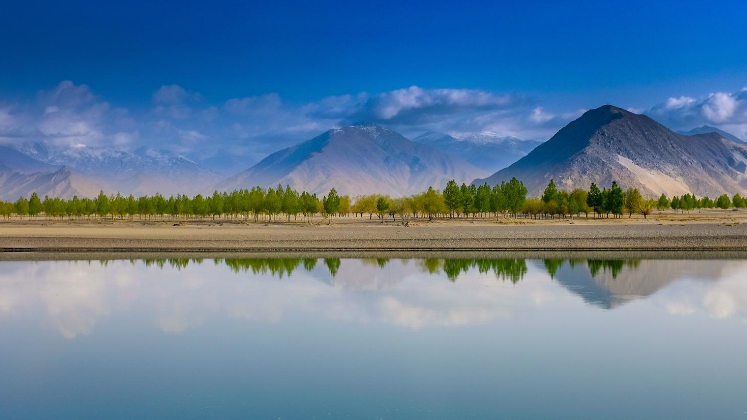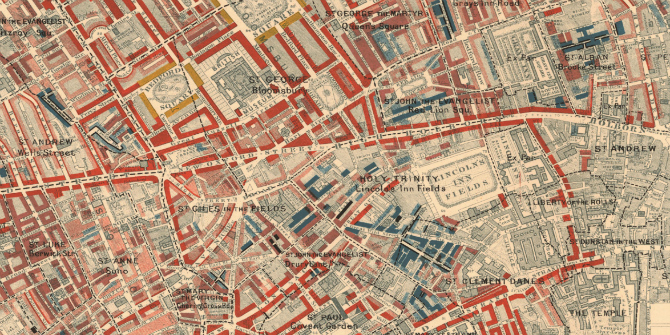 Winner of the 2013 English PEN Award for outstanding writing in translation, this book brings together some of the most exciting new writing born out of revolution in the Arab world. Writers discuss history, determination and struggle, as well as political and poetic engagement with questions of identity and activism. What this anthology makes abundantly clear is that the young people behind these uprisings, though often optimistic, were not blinded by the fervour of revolution but were in fact acutely aware of the obstacles that lay ahead, writes Lewis Garland.
Winner of the 2013 English PEN Award for outstanding writing in translation, this book brings together some of the most exciting new writing born out of revolution in the Arab world. Writers discuss history, determination and struggle, as well as political and poetic engagement with questions of identity and activism. What this anthology makes abundantly clear is that the young people behind these uprisings, though often optimistic, were not blinded by the fervour of revolution but were in fact acutely aware of the obstacles that lay ahead, writes Lewis Garland.

Writing Revolution: The Voices from Tunis to Damascus is an anthology of essays by authors, academics, journalists and activists who participated in and witnessed the wave of popular protest and revolution that swept across the Middle East and Maghreb in early 2011. The majority of these essays were written either during or in the immediate aftermath of the uprisings. With this collection, the editors, Layla Al-Zubaidi and Matthew Cassel, intend to provide a platform for the young people who authored these events and to combat misconceptions in the dominant narratives of the ‘Arab Spring’.
I began reading this book just hours before Egypt’s iconic Tahrir Square returned to our screens in July 2013. The optimism of 2011 had been soured by two years of spluttering attempts at democracy; within days Egypt was to witness a bloody massacre and a military coup. Meanwhile, the uprising in Syria had long since degenerated into a seemingly intractable sectarian stalemate. Approaching the book through this lens, I was prepared to write a review contrasting a false dawn with the cold light of day. However, whilst there are moments where such contrasts emerge – the fervent optimism in these accounts certainly sits uneasily with current events in the region – the primary lesson this anthology teaches about the ‘Arab Spring’ is that generalised conclusions about its success or failure are meaningless.
The mainstream media’s usual account of the ‘Arab Spring’ has clear temporal brackets and a linear narrative: a wave of popular unrest which starts with the self-immolation of Mohamed Bouazizi in Tunisia and ends with the collapse (or attempted overthrow) of a despot. Given this narrative, the absence of an overthrow or the onset of a counter-revolutionary backlash are treated as evidence of failure. However, the testimonies in Writing Revolution tell a very different story. These accounts situate the 2011 uprisings within a long-term historical continuum, many tracing the grievances that resulted in the recent uprisings back generations. Indeed, Yasmine El Rashidi (Egypt), Malek Sghiri (Tunisia) and Mohamed Mesrati (Libya) all directly refer to their parents’ experiences when discussing the origins of the uprisings. Equally, there is little suggestion that the contributors see the overthrow of dictatorship as an endpoint to their struggle. Most of these accounts directly refer to the obstacles ahead for their struggle including the advance of populist Islamism, the disguised return of the old regime and the importance of economic stability. It is Masrati who makes this point most succinctly: ‘’the Libyan revolution will not end when Gadaffi is finished; there will be many challenges in the way of a people who have never known the meaning of democracy or been accustomed to the workings of a functioning government”.
Another problem with the dominant narrative of these events is its tendency to overplay the idea of a single ‘wave’ of revolutions. The uprisings were unquestionably interrelated; these essays consistently refer to the swathes of young people taking to the streets in neighbouring countries as a source of inspiration. However, what they also make clear is that each country and sub-region has a unique political and cultural landscape and that these differences were crucial to the nature and outcomes of the uprisings. For example, Jamal Jubran (Yemen) suggests that in Yemen, Egypt, Syria and Libya institutional changes designed to ensure smooth dynastic transitions contributed to the uprisings by reminding the people that their republics had become “personal fiefdoms”. Ali Aldairy (Bahrain) and Safa Al Ahmed (Saudi Arabia) both argue that Saudi Arabia’s influence stifled revolutionary activity across the Arabian Peninsula. Of Saudi Arabia itself, Al Ahmed cites the regime’s successful harnessing of religion to suppress civil disobedience as the main reason why her country was largely untouched by the regional upheavals.
As well as challenging some of the misconceptions and over-simplifications of the uprisings, these accounts serve another important role: humanising the revolutions. As is often the case in situations of great historical and cultural import, the experience of the individual has largely been neglected in the coverage of the events. These accounts go some way to addressing this, providing an engrossing and intimate insight into the motivating factors behind the uprisings and their physical and emotional impact on the chief protagonists. As a representation of the varied experiences in this anthology I highlight three accounts:
Mohamed Mesrati offers a beautifully sculpted narrative of a young man who, after being forced into exile with his family, became a prominent activist against Gaddafi’s regime, propagating the revolutionary cause through social media. This account addresses important questions about the role that diaspora groups played in the uprisings and about the justification for NATO’s intervention. What this account does best however is paint a lucid picture of the barbarity and, at times, black-humoured absurdity of Gaddafi’s “Orwellian” regime.
Malek Sghiri’s story is that of a student leader who, through much personal sacrifice including brutal torture at the hands of the government, played a central role in Tunisia’s revolution. Sghiri’s account draws us into the mind of a revolutionary, a young man “ablaze with rage”. Particularly gripping is his struggle to balance the emotional with the rational whilst in the midst of the revolution.
Safa Al Ahmad provides an account of the uprisings through the eyes of a female Saudi Arabian journalist. The author uses her experiences in Yemen, Bahrain and Libya to reflect upon her own country and sense of identity. This piece is characterised by a palpable sense of shame and frustration, born both out of witnessing her country’s intervention on behalf of neighbouring despots and the dearth of any challenge to the Al Saud regime from within. As she puts it, “the entire Arab world was engaged in a collective uprising for its freedom and dignity and my countrymen and women were begging for scraps”.
Writing Revolution is an essential read for anyone seeking to understand the Arab uprisings from the perspective of those who experienced it first-hand. In giving these people a platform this anthology succeeds not only in challenging popular misconceptions about the ‘Arab Spring’, but also in giving these historic events a human face. What this anthology makes abundantly clear is that the young people behind these uprisings, though often optimistic, were not blinded by the fervour of revolution but were in fact acutely aware of the obstacles that lay ahead.
—————————————————
Lewis Garland is a freelance journalist and social justice activist. He has written on issues ranging from the rights of asylum seekers to post-conflict reconciliation. Lewis holds a MSc in Human Rights from the University of Birmingham and a BA in History and Politics from the University of Warwick. He has previously worked for the International Centre for Ethnic Studies, Sri Lanka. Lewis tweets as @lewisgarland. Read more reviews by Lewis.







